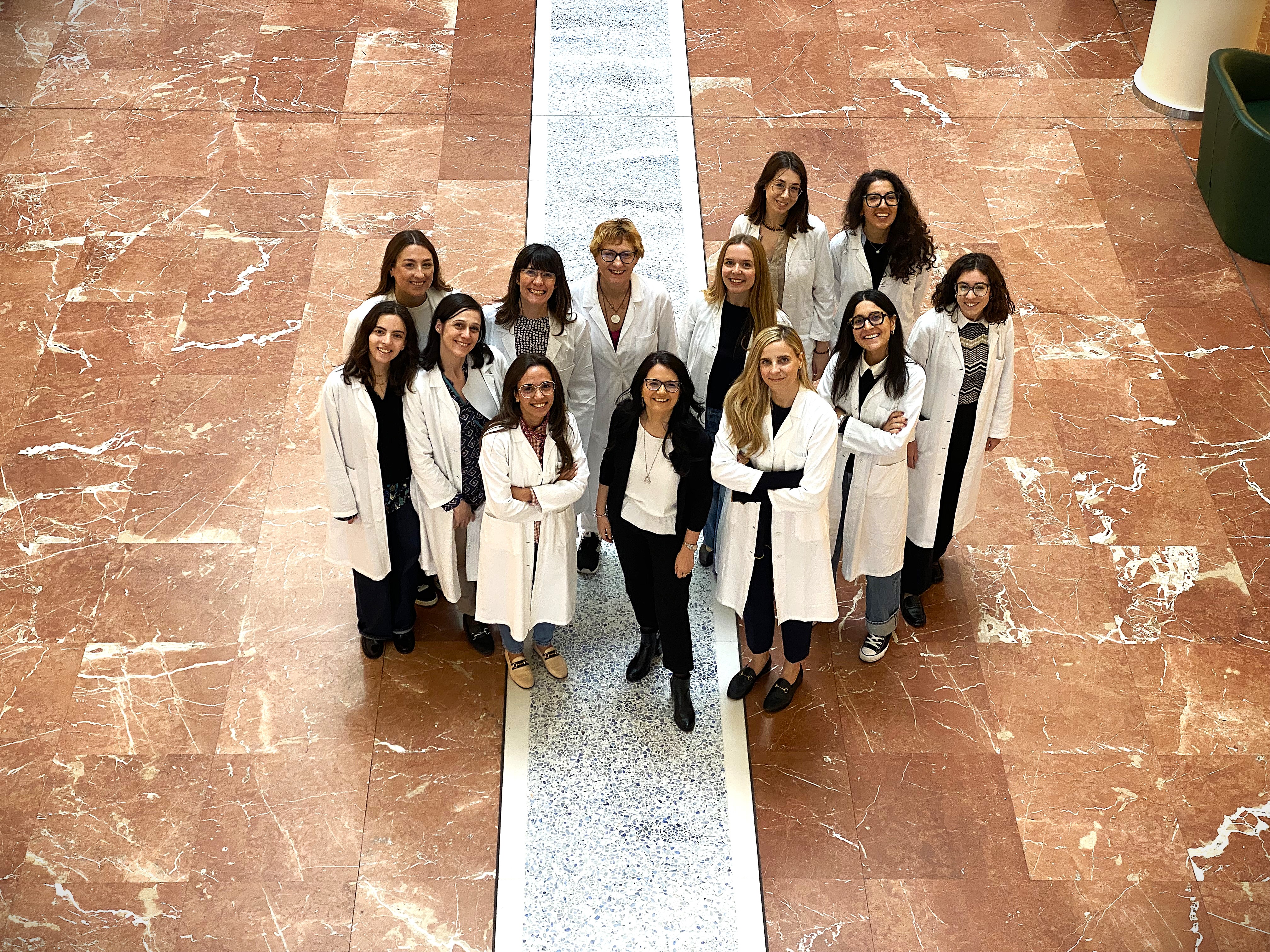A new CAR-T cell therapy developed to target liver metastases from colorectal cancer

Publication date: 27-06-2025
Updated on: 27-06-2025
Topic: Research, Oncology
Estimated reading time: 1 min
A team of researchers from IRCCS Ospedale San Raffaele has developed and tested an innovative cellular immunotherapy in preclinical models for the treatment of liver metastases from colorectal cancer, one of the leading causes of cancer-related death.
The study, recently published in Science Translational Medicine and coordinated by Dr. Monica Casucci, head of the Innovative Immunotherapy Research Lab at IRCCS Ospedale San Raffaele, paves the way for new therapeutic options thanks to CAR-T cells engineered to selectively target tumor tissue.
Immunotherapy for Solid Tumors
This research is part of the broader effort to develop immunotherapies for solid tumors, with a focus on liver metastases from colorectal cancer, the primary cause of death in patients with this condition.
Current therapies, such as surgery or chemotherapy, are often not curative, and 5-year survival rates remain low. While CAR-T cell therapies have shown remarkable success in treating blood cancers, their effectiveness in solid tumors has so far been limited, mainly due to the lack of safe and effective tumor-specific targets.
The Scientific Study
In this study, researchers developed a new experimental therapy using genetically modified immune cells known as CAR-T cells. These cells were engineered to recognize a protein called Cadherin-17 (CDH17), which is abundantly expressed on tumor cells but is inaccessible or absent in healthy tissues.
Experiments conducted in relevant preclinical models showed that CAR-T cells targeting the CDH17 antigen were able to effectively halt tumor growth without damaging healthy tissue.
“The fundamental question behind our study was: is there a suitable target to develop a safe and effective CAR-T cell therapy against liver metastases from colorectal cancer? We identified a protein highly expressed by cancer cells but absent, or not reachable, in healthy tissues,” explains Dr. Beatrice Greco, first author of the study.
“Once the target was identified, we developed CAR-T cells specific to it and tested their efficacy and safety profiles in multiple preclinical models,” adds Dr. Rita El Khoury, co–first author of the study.
The CAR-T cells were also tested on patient-derived tissue samples, yielding highly promising results: the cells attacked tumor tissue but spared healthy tissue. This study was made possible thanks to tumor and healthy tissue samples donated by patients who chose to support scientific research by participating in the project.
Next Steps
This work marks a significant step toward the launch of upcoming clinical trials in humans for treating liver metastases from colorectal cancer.
A crucial element in achieving this milestone is the presence of a state-of-the-art Biological Resource Center (BRC) at San Raffaele, a biobank that collects, preserves, and distributes human biological samples and associated data to support translational clinical research. The BRC adheres to the highest standards of quality, safety, and ethics and is part of international networks such as BBMRI-ERIC. This infrastructure facilitates cutting-edge research and broad access to essential resources for the scientific community.
“Our work addresses an urgent clinical need: to develop safe and effective treatments for liver metastases from colorectal cancer, for which current therapeutic options are limited. The next step will be a phase 1/2 clinical trial to evaluate the safety and efficacy of this therapy in patients,” says Dr. Monica Casucci, lead investigator.
These results could also open therapeutic possibilities for other tumors that express Cadherin-17, such as gastric cancer and neuroendocrine tumors.
The study is part of an ambitious research program supported by Italy’s 5xmille tax donation scheme, launched six years ago with funding from AIRC (Italian Association for Cancer Research). The program involves 17 research teams and clinical units from the Vita-Salute San Raffaele University and IRCCS Ospedale San Raffaele, with the goal of developing advanced therapies against liver metastases from colorectal and pancreatic cancers.
“We’re proud of the progress made so far, which reflects the commitment and dedication of researchers and clinicians to translating laboratory findings into tangible treatments for patients,” says Professor Chiara Bonini, program coordinator, head of the Experimental Hematology Unit, and Full Professor of Hematology at Vita-Salute San Raffaele University.
“Translational research has always been the hallmark of San Raffaele: bringing together top-level clinical and scientific expertise to support cancer patients and contribute to advancing scientific knowledge and its real-world application,” concludes Professor Fabio Ciceri, Director of the Comprehensive Cancer Center, Head of Hematology and Bone Marrow Transplantation Unit at IRCCS Ospedale San Raffaele, and Full Professor of Hematology at Vita-Salute San Raffaele University.
The study is the result of an international collaboration involving multiple internal units at IRCCS Ospedale San Raffaele, Institut Cochin at Université Paris Cité, and funding from AIRC, the Italian Ministry of Health and Education, and the European Union (via the European Research Council and Innovative Medicines Initiative).
